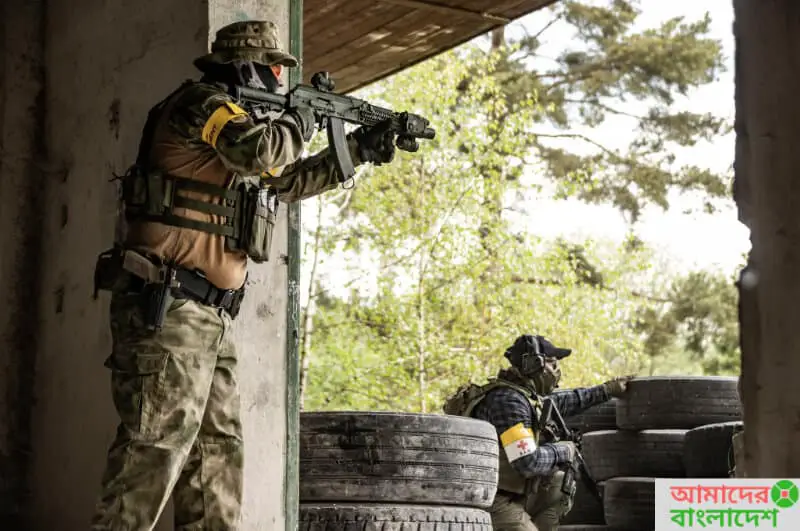Last Updated on February 21, 2021 by Adnan Musa
Both Bangladesh and Pakistan are two independent countries of South-Asia. Bangladesh once was a part of Pakistan and that was in 1947, following the end of the British Raj. At that time the Indian subcontinent was divided into Pakistan and the Union of India. This dividation was the result of religious and ideological differences between the people of this region.
Then, the state of Pakistan was physically separated into two parts by the Republic of India: West Pakistan and East Pakistan (now Bangladesh). Both parts of Pakistan were separated by about 1,000 miles. The then capital of Pakistan was Karachi which was in West Pakistan. There was discrimination in the economy and ruling powers against East Pakistan which resulted in the Bangladesh Liberation War in 1971. Finally, Bangladesh becomes independent on 16 December 1971.
Bangladesh Liberation War
The Bangladesh Liberation War was a revolution and armed conflict sparked by the rise of the Bengali nationalist and self-determination movement in what was then East Pakistan during the 1971 Bangladesh genocide. This war began when the Pakistani military launched Operation Searchlight against the people of the then East Pakistan on the night of 25 March 1971. The Pakistan army also arrested the Prime minister-designate Sheikh Mujibur Rahman just after he declared the independence of Bangladesh. The war ended on 16 December 1971 after West Pakistan surrendered to the Mitro bahiny.
Reasons For Bangladesh Liberation War
There were significant differences between the people, culture, language, and economy of East Pakistan and West Pakistan. At that time the population of both zones of Pakistan was close to equal; however political power was concentrated in West Pakistan. Moreover, East Pakistan was being exploited economically which lead to many grievances. In 1970, an election won by an East Pakistani political party named the Awami League was ignored by the ruling party of West Pakistan. It also increased the tension between the two zones of Pakistan. On 25 March 1971, Pakistan Army brutally attacked the innocent people of East Pakistan that started the liberation war of Bangladesh. There are quite a few key reasons for Bangladesh’s Liberation War. Let’s check them out!
Jump To The Right Section
Language Controversy
Language controversy between West Pakistan and East Pakistan laid the foundation of Bangladesh’s Liberation war. The problem started when Governor-General Muhammad Ali Jinnah declared that “Urdu, and only Urdu” would be the federal language of Pakistan in 1948. However, in East Pakistan, Bengal was the native language. At that time Bengali-speaking people of Pakistan constituted over 30% of the country’s population. They did not accept the proposal from Governor-General Muhammad Ali Jinnah. The people of East Bengal demanded that their language be given federal status alongside Urdu and English. It resulted in the Language Movement and the movement reached its climax on 21 February 1952 when the police fired on protesting students and civilians, causing several deaths. Since then, 21 February is revered in Bangladesh as the Language Movement Day. In November 1999, UNESCO declared 21 February as International Mother Language Day.
Disparities
During the 1947 – 1971 periods, East Pakistan had a larger population but West Pakistan dominated the divided country politically and received more money from the common budget. From the beginning, East Pakistan’s economy was already weak compared to West Pakistan’s economy. So the deliberate state discrimination in developmental policies of both zones created a tense political environment in East Pakistan. The below table will give a clear overview of the then situation:
| Year | Spending on West Pakistan (in millions of Pakistani rupees) | Spending on East Pakistan (in millions of Pakistani rupees) | Amount spent on East as a percentage of West |
| 1950–55 | 11,290 | 5,240 | 46.4 |
| 1955–60 | 16,550 | 5,240 | 31.7 |
| 1960–65 | 33,550 | 14,040 | 41.8 |
| 1965–70 | 51,950 | 21,410 | 41.2 |
Ideological And Cultural Differences
In 1947, Bengali Muslims had chosen Pakistan’s Islamic project but the scenario changed afterward. By the 1970s, the people of East Pakistan had given priority to their Bengali ethnicity over their religious identity. They have demanded a society in accordance with Western principles such as secularism, democracy, and socialism. People from East Pakistan strongly objected to the Islamist paradigm imposed by the Pakistani state. Moreover, the cultural and linguistic differences between East and West Pakistan were increasing every day. West Pakistani elite believed that the people of East Pakistan had assimilated considerable Hindu cultural influences. They wanted the Bengalis to adopt Urdu and follow their culture. But the Bengali people began propagating their secular message through The Awami League and Bengali leadership.
Political Differences
From the very beginning, the political power remained in the hands of West Pakistanis. The policymakers of West Pakistan came up with the “One Unit” scheme instead of representation based on the population system. The main reason behind this scheme was to counterbalance East Pakistan’s votes. After the assassination of Pakistan’s first prime minister, in 1951, political power began to devolve according to the new President of Pakistan. There were lots of changes in the political scenarios of West Pakistan and the leaders of East Pakistan realized that the West Pakistani establishment would swiftly depose any East Pakistanis elected Prime Minister of Pakistan.
Things got worse during the military dictatorships of Ayub Khan and Yahya Khan. The situation reached a climax in 1970, when the Bangladesh Awami League, led by Sheikh Mujibur Rahman, won a landslide victory in the national elections. The Awami League won 167 of the 169 seats allotted to East Pakistan and they received the constitutional right to form a government. However, Zulfikar Ali Bhutto the leader of the Pakistan People’s Party refused to allow Sheikh Mujibur Rahman to become the Prime Minister of Pakistan. Therefore, Sheikh Mujibur Rahman called for a nationwide strike.
On 7 March 1971, Sheikh Mujibur Rahman delivered a speech at the Racecourse Ground (now called the Suhrawardy Udyan) and mentioned a further four-point condition to consider at the National Assembly Meeting on 25 March:
1. The immediate lifting of martial law
2. Immediate withdrawal of all military personnel to their barracks
3. An inquiry into the loss of life
4. Immediate transfer of power to the elected representative of the people before the assembly meeting 25 March
The 1970 Cyclone
In 1970, the deadliest tropical cyclone on record happened in Bhola and killed an estimated 300,000 to 500,000 people. At that time a political conflict between East and West Pakistan developed, so there was a lack of proper relief efforts from the government. Moreover, the president was accused of playing down the magnitude of the problem in news coverage. Therefore, Abdul Hamid Khan Bhashani addressed a rally of 50,000 people on 24 November and demanded the resignation of the president due to the inefficiency and lack of support from the president.
Final Thought
All these things increased the tension and as a result, the conflict widened into the Bangladesh Liberation War which at last end with the creation of Bangladesh. So along with the other reasons the natural disaster helped to start the liberation war of Bangladesh.

